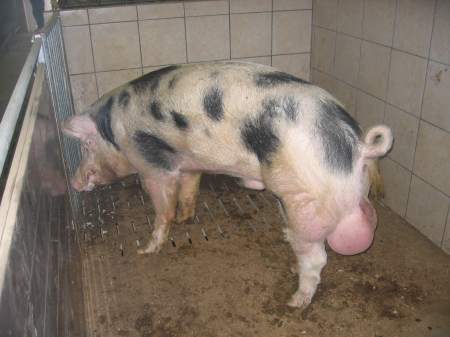- Survey of the biological performance of the individual animal/experimental groups.
- Survey of the natural behavior of the individual animal/experimental groups (is it possible to fatten boars without problems - good nature of the boars?!).
- Evaluation of the slaughter performance with special consideration of the parameter - meat quality in general (pH value, drip juice, meat color, etc.).
- Determine the suitability of boar fattening as an appropriate method for producing pork for consumption.
- Obtaining statements for practicing farmers on the fattening of boars.
- Determine the suitability of boar fattening as an alternative fattening method - no need to carry out surgical castration of male piglets.
The following points are important:
- Higher profitability through fattening boars - young boars grow faster: Fattening adapted to the boars (especially in terms of feed) has a significant impact on the economic results of fattening farmers.
- Results from studies in neighboring countries show that fattening boars enables higher biological performance (e.g. feed conversion, daily weight gain). This can improve the economic situation of pig fattening farms.
- Meat quality - same or better qualities for boar meat: V. a. Results from Switzerland give the young boar meat a good to very good grade. It is therefore important to investigate whether castration is necessary or not. If the same or even better meat quality can be achieved with boars, then castration without eliminating pain is not necessary.
- Development of a suitable test procedure to prevent boar taste in meat products: In order for boar fattening to be placed on a broad and accepted basis, it is necessary to develop an objective test procedure through which the quality of the carcass can demonstrably be determined. This particularly concerns the smell of meat that is typical of boars. This is caused by skatole or androstenone. These metabolic products are deposited primarily in the fatty tissue of the animals and lead to the typical pig or boar smell when prepared.
- The use of the electronic nose or olfactometry should be mentioned as suitable and objective measures.
- The only solution from an animal welfare perspective: By fattening boars, the bloody castration of piglets is no longer necessary. This means that fattening pig farming is better accepted by consumers and animal welfare. The castration procedure, which can be classified as extremely painful, is avoided. Unnecessary suffering will no longer be inflicted on the animal.







